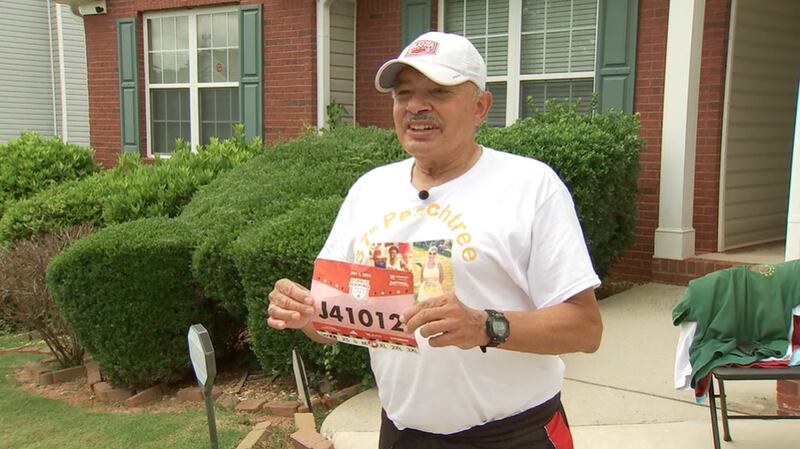GWINNETT COUNTY, Ga. — A Gwinnett County police officer who watched her partner die in the line of duty is leading the charge for more mental health care for first responders.
Channel 2 Gwinnett Bureau Chief Matt Johnson spoke with her about a new law taking effect that she hopes will save lives.
[DOWNLOAD: Free WSB-TV News app for alerts as news breaks]
Police officers, like any first responders, never know when they will walk into a traumatic experience.
“We see people’s worst day day in and day out,” Sgt. Ashley Wilson told Johnson.
Wilson says her worst day was in 2018, the day her partner, Officer Antwan Toney, died in the line of duty.
“Before Officer Toney had chance to shut his door, he was shot six times,” Wilson said.
Toney died in Wilson’s arms. She says it changed everything about her.
“I became very depressed and was considering suicide,” she said.
Since then, Wilson has been fighting for better mental health support for Georgia first responders.
“Our suicide rates in the first responder community are astronomical, and we need some help,” she said.
Lawmakers at the state Capitol started listening. Rep. Devan Seabaugh is a former paramedic and worked with Wilson on a bill.
“I think it’s going to save a lot of lives down the road,” Seabaugh said.
RELATED STORIES:
- Man pleads guilty, apologizes for role in officer’s killing
- ‘A lot of heart:’ Here’s what we know about fallen officer Antwan Toney
- Inmates at Gwinnett County jail send sheriff letter honoring fallen officer
In May, Gov. Brian Kemp signed the Ashley Wilson Act that went into effect this week. It makes getting mental health services for first responders a lot easier.
“They’ll get a $3,000 cash benefit once they’re diagnosed with PTSD,” Seabaugh explained.
First responders can also take extra time to recover from trauma if it’s needed before they return to work.
“A three-year or 36-month supplemental salary benefit will kick in,” Seabaugh said.
Wilson said she has racked up thousands of dollars in medical bills to eventually overcome her PTSD. She hopes the journey for others isn’t as hard.
“This was all about leaving the profession a little bit better than I found it,” she told Johnson.
This is the first program of its kind in the country with the hope that other states follow Georgia’s lead.
[SIGN UP: WSB-TV Daily Headlines Newsletter]
IN OTHER NEWS
©2024 Cox Media Group





